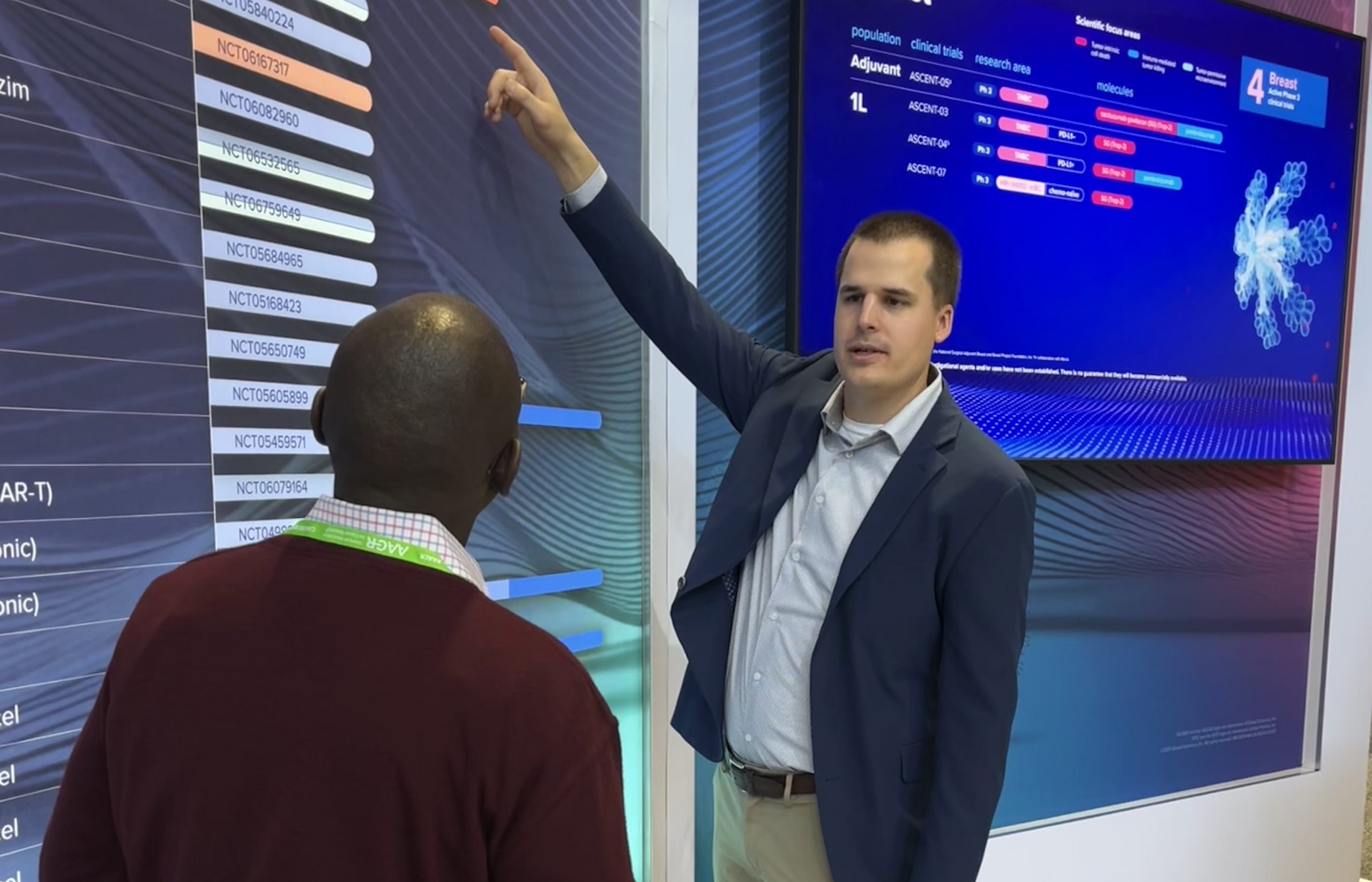Pursuing a career passion explored in college
During Saint Mary’s previous largest $73 million capital campaign, Philip Emmerich B’16 was in his senior year as a biochemistry and biology major.
A large portion of that campaign was focused on constructing a new science building on the Winona Campus, a cause dear to Emmerich’s heart. And though he knew he’d never personally benefit from the new construction, he assisted with a video campaign to raise awareness, encourage benefactors to donate, and share his story.
Emmerich wanted to be a cancer researcher, and even as an undergraduate student, he was on the path to becoming one. He had served as a summer research fellow through the Gundersen Health System, through which he helped analyze the prevalence of a BRAF mutation in lung cancer patients in the La Crosse, Wis., area and presented his findings.
Fast forward nearly 10 years, another record campaign completion, and the corresponding progress.
Dr. Emmerich did indeed follow the path of cancer research; he is currently working as a medical science liaison on the oncology team at Gilead Sciences, and though he’s still never stepped inside what is now Aquinas Hall, he stays current on all the changes that have happened at his alma mater, particularly in the sciences. On the other end of the spectrum, Dr. Emmerich can tell you all the advancements that have happened in cancer research in the past decade. It’s part of what continues to fuel him in his work.
“When you get the wins it’s easy to hold onto them because you’re making such a big difference,” he said.
After graduating from Saint Mary’s, he attended graduate school at the University of Wisconsin-Madison, where he served as a teacher’s assistant under an oncologist, through which he said he learned both the patient-facing side, while also working on biopsy samples and correlative work to support the research side — focusing on colorectal cancer. He earned his Ph.D. in Cellular and Molecular Pathology in 2020 and continued as a postdoctoral researcher until 2021.
He then joined Bristol Myers Squibb as a medical science liaison on their biomarkers team, supporting cancer work. “What I did in that role was talk about the scientific innovation my company was doing to providers, running samples for patients and then, cross talk, bringing back the latest innovations occurring in the field to my company,” he said.
In March of 2023, he transitioned to his current role with Gilead Sciences, through which he is supporting the development of FDA-approved therapies as well as products still in development, for patients afflicted with several types of solid tumors.
“I now work with medical oncologists in the breast cancer space,” he said, explaining that his role is a great way to use his advanced degree without having to live in a major metropolitan area. “I live in Eau Claire, Wis., and I don’t have to be in Chicago or Minneapolis and can still make an impact on a Fortune 500 Company working against cancer,” he said.
And, he said, he enjoys that each day is different, from attending major academic and medical conferences (like ASCO in Chicago with leading medical oncologists) to the day-to-day interactions (which could include going to a local cancer clinic to share data or answer questions like possible side effects of medication, or working within the internal side of the company, like connecting with sales and marketing).
“This industry moves quickly,” he said. “This role sits at a cool interface with medical oncologists where one day I’m talking with someone who is the head of the breast cancer department of the University of Chicago who is on the cutting edge, with all the latest data, and I can gain information from her and learn from her experiences, and the next day I’m at the Marshfield Clinic where I’m talking with someone who sees maybe two breast cancer patients a month and they don’t have the same bandwidth or resources, and I’m able to bring what I learned to the community provider … who may not otherwise have been privy to the details I was able to share.”
Dr. Emmerich knows that cancer research doesn’t happen without many people working together, sharing knowledge, and trusting the science.
“Being one of those people and seeing those changes is a really rewarding experience,” he said. “People don’t know how much change is happening. Real things are happening. Cancer isn’t this big block disease. Not everyone has this dismal diagnosis. There are kinks in the armor.
“Things exist now that didn’t 10 years ago, and certainly not 15 years ago. The general public needs to understand that progress is being made very rapidly and trust medicine to make those advances and care for patients. It’s when that mistrust occurs, that saddens me when that happens.”
Dr. Emmerich said, looking back, although he never got to do his research in the new science labs at his alma mater, it didn’t matter.
“Saint Mary’s was pivotal to getting me where I am,” he said. “This isn’t to disparage the new building because updating technology and facilities is important, but it’s easy to say go to where there’s the most research funding, the most grants, or the best reputation for XYZ. You think these enormous universities will somehow automatically get you to where you want to be as a scientist.
“Resources are important, but what you learn and what you internalize and what you bring with you is the most important part of your degree,” he added. “Who are you as a person, what values do you have? That’s what I developed in time at Saint Mary’s. That’s when I learned how I view the world, how to listen before you speak, how to empathize. Those are just as important. Saint Mary’s liberal arts approach to education allowed me to marry those two things and allowed me to have the career I have now.”
